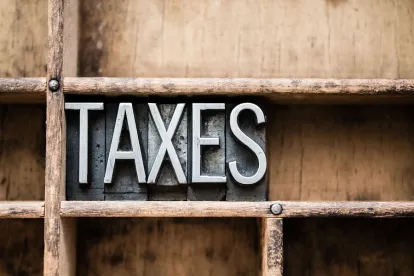While speaking at the National Prayer Breakfast on February 2, 2017, President Trump reaffirmed his commitment to repeal the law that restricts organizations that are tax exempt under Section 501(c)(3) of the Internal Revenue Code (“Code”) from engaging in political campaign activities. This law, enacted in 1954, is commonly known as the Johnson Amendment since it was proposed by then-Senator Lyndon B. Johnson. During the breakfast, President Trump stated: “I will get rid and totally destroy the Johnson Amendment and allow our representatives of faith to speak freely and without fear of retribution. I will do that. Remember.” This statement is in line with President Trump’s campaign promises. In his acceptance speech at the Republican National Convention, Trump expressed his commitment to repeal the Johnson Amendment to provide freedom of speech to all Americans.
Codified in Code Section 501(c)(3), the Johnson Amendment provides that entities organized for religious or charitable purposes (among others) must “not participate in, or intervene in (including the publishing or distributing of statements), any political campaign on behalf of (or in opposition to) any candidate for public office” in order to qualify as tax exempt. According to the Internal Revenue Service (“IRS”), some prohibited activities include contributing funds to a political campaign and making public statements, either oral or written, endorsing or opposing a candidate for public office. However, the IRS has stated that engaging in non-partisan activities like voter education activities and other activities that encourage individuals’ participation in the electoral process are not prohibited activities.
A draft executive order, which was leaked and published online on February 1, included language prohibiting the Department of Treasury from penalizing, denying tax exempt status or disallowing charitable tax deductions to any person or religious organization for speaking out on moral or political issues from a religious perspective. The White House has not made a formal announcement regarding the executive order. In any event, President Trump will have to work with Congress to pass legislation to modify or repeal the law.
In addition, on February 24, 2017, House Ways and Means Committee Chair Kevin Brady (Republican – Texas) stated that the Johnson Amendment would be eliminated under any tax reform supported by the Trump administration. Other members of Congress have already introduced legislation that would repeal or at least alter the Johnson Amendment. On January 3, 2017, Representative Walter B. Jones (Republican – North Carolina) introduced a bill (H.R. 172) to repeal the Johnson Amendment. The bill was referred to the House Committee on Ways and Means. Additionally, Representatives Steve Scalise (Republican – Louisiana) and Jody Hice (Republican – Georgia) introduced the Free Speech Fairness Act (H.R. 781) on February 1, 2017, which would permit tax exempt organizations to make certain statements related to a political campaign without losing tax exempt status. The legislation would require that the political statement: (1) is made in the ordinary course of the organization’s regular and customary activities in carrying out its exempt purpose, and (2) results in the organization incurring not more than de minimis incremental expenses. The bill was referred to the House Committee on Ways and Means. Also on February 1, 2007, Senator James Lankford (Republican – Oklahoma) introduced the companion bill (S.264) to the Free Speech Fairness Act to the Senate and it has been referred to the Committee on Finance.
It is unclear at this time what further action Congress or President Trump will take in this area. Nevertheless, tax exempt organizations and other interested parties should continue to monitor these developments.
The post was written by Yomarie Habenicht.



 />i
/>i

